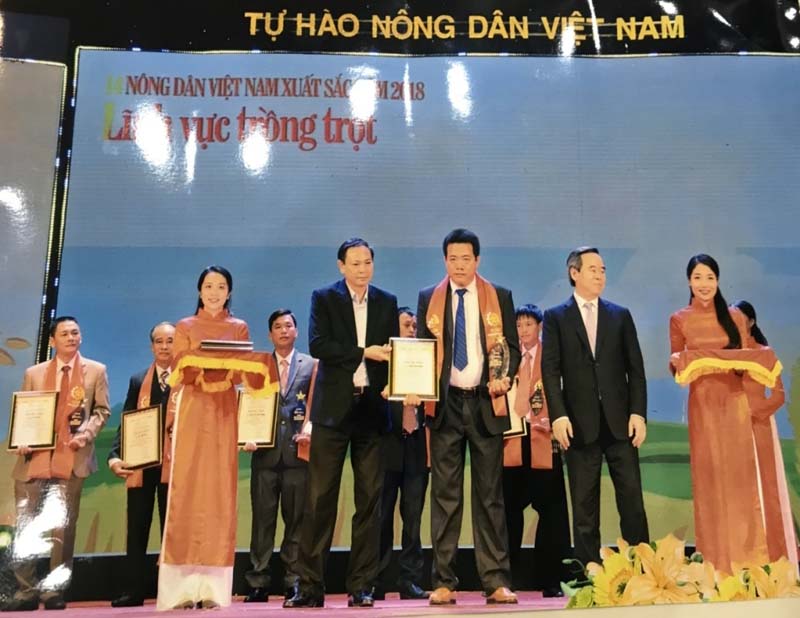



Mr. Tran Van Minh was awarded the title of
"Excellent Vietnamese Farmer" in 2018.
Mr. Tran Van Minh started his farming and
breeding career in 2004.
To exploit the potential and strengths of the
locality, he decided to expand the area and scale of production gradually every
year. Currently, his family has accumulated 45 hectares of land, over 40
hectares of which is the forestry land for planting acacia and eucalyptus
trees. To improve the efficiency, he combined cattle grazing with the total
herd ranging from 45 to 60 animals. At present, there are 36 cows and 18
buffaloes, including 15 mother cows, 8 mother buffaloes in good health for
breeding. Every year, he exploits to sell partially from 8 to 10 hectares of
commercial acacia and exports 15-20 cows, earning the interest from 400-450
million dongs.
Mr. Minh also planted 4,5 hectares of
planting galangal, lemongrass in the lower foothills, for a stable harvest of
45 - 50 tons, excluding the expenses, this brings to him about 600 million VND
per year. In the garden near his house, he planted 1 hectare of Dien grapefruit
for the shade and high economic efficiency, which he can collect the profit of
150 million VND each year. On average every year, his family earns 1.2 billion
dong of interest from the cultivation and husbandry model.
Not satisfied with only farming and
husbandry, in 2010, he continued to invest in business services transportation,
construction machinery. His family currently has a pickup truck, 3 excavators,
bulldozers to serve the work of the family, and meet the needs of production
machinery for local people in the region. Each year, his family earns 4.5
billion VND, after excluding expenses, the profit reached 3 billion VND. With
this economic model, his family has created regular jobs for 5 - 7 laborers,
sometimes attracting 30 seasonal workers in the locality.